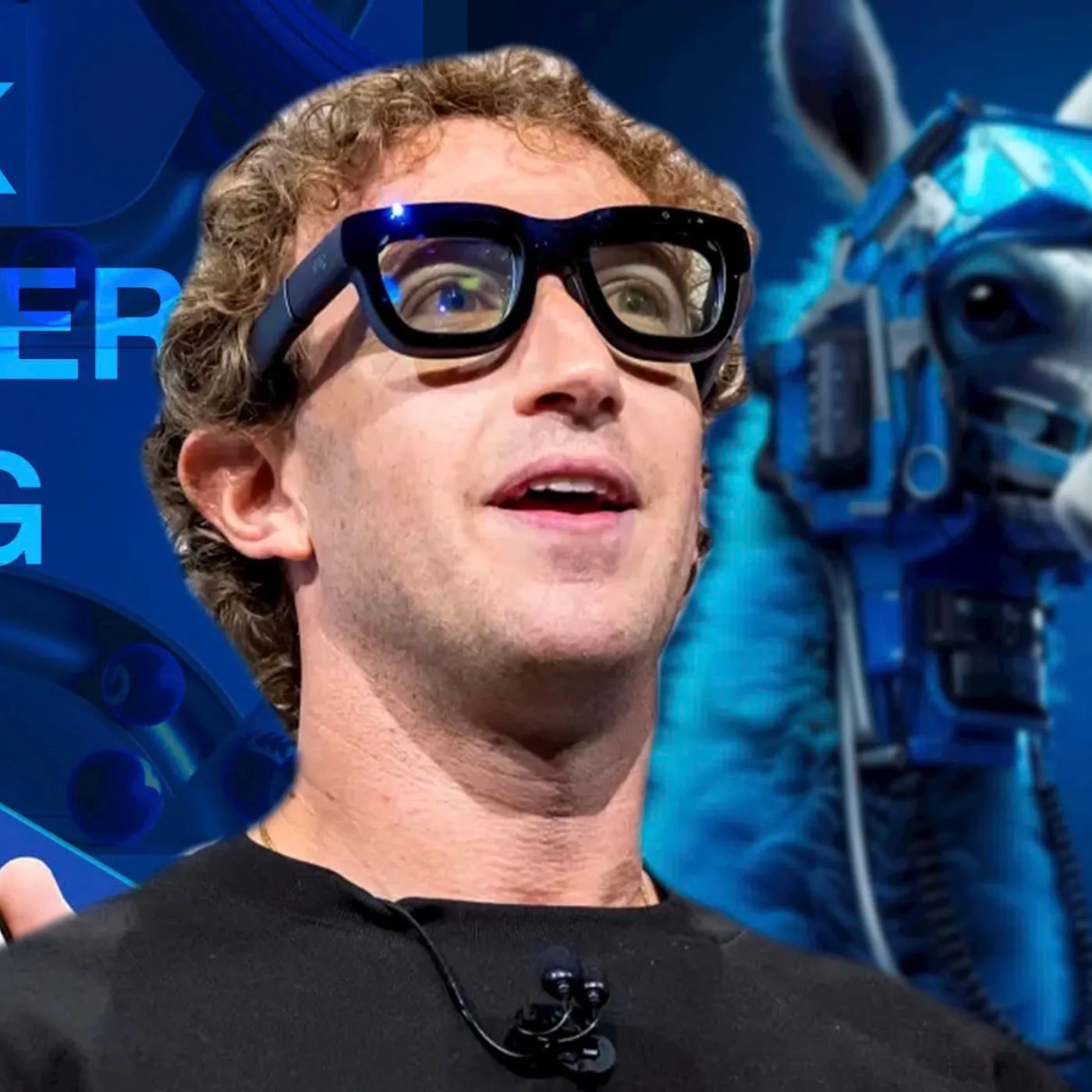The Shocking Truth Behind Mark Zuckerberg’s Latest ‘Upgrade’ – What You Need to Know!
In the world of tech, Mark Zuckerberg has always been a figure who commands attention. As the co-founder and CEO of Meta, Zuckerberg’s decisions shape the future of the digital world. Recently, there has been a buzz around Zuckerberg’s latest ‘upgrade’—a move that has shocked the tech world and left many wondering what it means for the future of his companies and the digital landscape. In this article, we will explore the shocking truth behind Mark Zuckerberg’s latest ‘upgrade’ and break down what it means for him, his business, and the tech industry as a whole.

What Is Mark Zuckerberg’s ‘Upgrade’?
The phrase ‘upgrade’ may seem vague, but it has sparked curiosity among tech enthusiasts, investors, and even Meta users. In recent months, Mark Zuckerberg’s latest ‘upgrade’ involves significant changes in the way he is positioning Meta, shifting the company’s focus, and revamping its products. This move comes after a challenging period for the company, with changes to the Facebook platform and the ambitious but costly pivot toward the Metaverse.
So, what exactly is this ‘upgrade’? It’s not just about improving software or hardware—it’s a shift in Zuckerberg’s vision for the future of Meta. This upgrade marks the beginning of a more streamlined, innovative, and user-centric approach. Zuckerberg is focusing on optimizing his platforms to improve user experiences, increase engagement, and tap into new revenue streams.
The Metaverse Focus
For years, Zuckerberg has been vocal about his vision for the Metaverse, a digital universe where users can interact in immersive, virtual environments. Meta, the company formerly known as Facebook, has heavily invested in developing the Metaverse, and Zuckerberg sees this as the next frontier of digital connectivity.
This ‘upgrade’ includes the integration of the Metaverse with Meta’s flagship platforms, such as Facebook, Instagram, and WhatsApp. The goal is to create a seamless bridge between social media and virtual reality (VR), allowing users to interact more dynamically in both digital and physical spaces. As part of this shift, Meta is also rolling out a series of new VR and AR products to further enhance the Metaverse experience.
Zuckerberg’s focus on the Metaverse signals his intention to lead the company into the next phase of the internet, where virtual worlds become central to social interactions, gaming, business, and more. It’s a bold move that could redefine the concept of online engagement.
The Shift Toward Privacy and User Experience
While Zuckerberg’s Metaverse vision may dominate the headlines, Meta’s recent ‘upgrade’ is also centered on improving user experience and addressing growing concerns about privacy. The company has faced significant backlash over privacy issues, data collection practices, and concerns about how it handles user information.

In response, Zuckerberg has committed to enhancing privacy features and creating a more transparent and secure environment for Meta users. As part of the ‘upgrade’, Meta is refining its privacy policies and introducing more user-friendly tools for controlling data. These changes are aimed at regaining trust and ensuring that users feel safe while using Meta’s products.
Zuckerberg’s shift in focus is evident in how Meta is restructuring its approach to content moderation, transparency in advertising, and data sharing. The goal is to create a digital space that is not only innovative but also respects the privacy and preferences of users. This transformation reflects Zuckerberg’s desire to balance technological advancement with ethical responsibility.
The Financial Implications of Zuckerberg’s ‘Upgrade’
While Mark Zuckerberg’s ‘upgrade’ is a strategic move to position Meta as a leader in the digital space, it also carries significant financial implications. The Metaverse is an ambitious venture that requires massive investment in technology, infrastructure, and research and development. Meta’s push into virtual reality, augmented reality, and other immersive technologies is a costly endeavor that will take years to fully realize.
In recent earnings reports, Meta has faced scrutiny over the costs associated with its Metaverse investments. However, Zuckerberg remains committed to this long-term vision, believing that the Metaverse will ultimately unlock new revenue streams. By investing in the Metaverse now, Meta hopes to dominate this emerging market, which could offer massive returns once the technology matures.
The ‘upgrade’ in Meta’s approach could also help stabilize its financial position, particularly after facing challenges related to Facebook’s user growth and monetization. By diversifying its portfolio and creating new products, Zuckerberg aims to position Meta for future success while navigating a rapidly changing tech landscape.
The Competitive Landscape: How This ‘Upgrade’ Affects the Industry
The shocking truth behind Mark Zuckerberg’s latest ‘upgrade’ is not just about Meta—it’s also about the broader tech industry. Zuckerberg’s moves will undoubtedly have a ripple effect on competitors like Google, Apple, Microsoft, and other companies vying for dominance in the metaverse, VR, and AR spaces. As Zuckerberg doubles down on the Metaverse, other tech giants are ramping up their own investments in these technologies.
Zuckerberg’s ‘upgrade’ is a direct challenge to rivals in the VR and AR markets, as Meta looks to set the standard for immersive experiences. This creates an environment of fierce competition, with major players racing to develop better hardware, software, and applications that will power the future of the metaverse. Meta’s focus on privacy and user experience could also force competitors to reassess their own practices and improve their offerings to stay competitive.
What Does This Mean for Meta Users?
For Meta users, Zuckerberg’s ‘upgrade’ promises exciting changes. From improved privacy features to new ways to engage with friends and communities in the metaverse, users can expect a more seamless and interactive experience. The integration of VR and AR into existing platforms like Facebook and Instagram could introduce new ways to communicate, share content, and interact with others online.
As Meta continues to evolve, users will likely see more immersive, interactive, and engaging experiences across the company’s platforms. While the metaverse is still in its early stages, Zuckerberg’s vision could lead to a future where virtual and physical worlds are seamlessly interconnected.

The shocking truth behind Mark Zuckerberg’s latest ‘upgrade’ is that Meta is undergoing a transformation that will shape the future of the tech industry. From the Metaverse to enhanced privacy and user experience, Zuckerberg is positioning Meta as a leader in the next generation of digital innovation. While the road ahead may be filled with challenges, Zuckerberg’s commitment to building a connected, immersive future could change the way we interact online forever.
For those watching the future of tech, Zuckerberg’s upgrade is a sign that Meta is not just adapting to change—it is driving it. Whether you’re excited about the Metaverse, the enhanced privacy features, or what’s next for Meta, one thing is certain: the future is coming, and it’s happening now.


